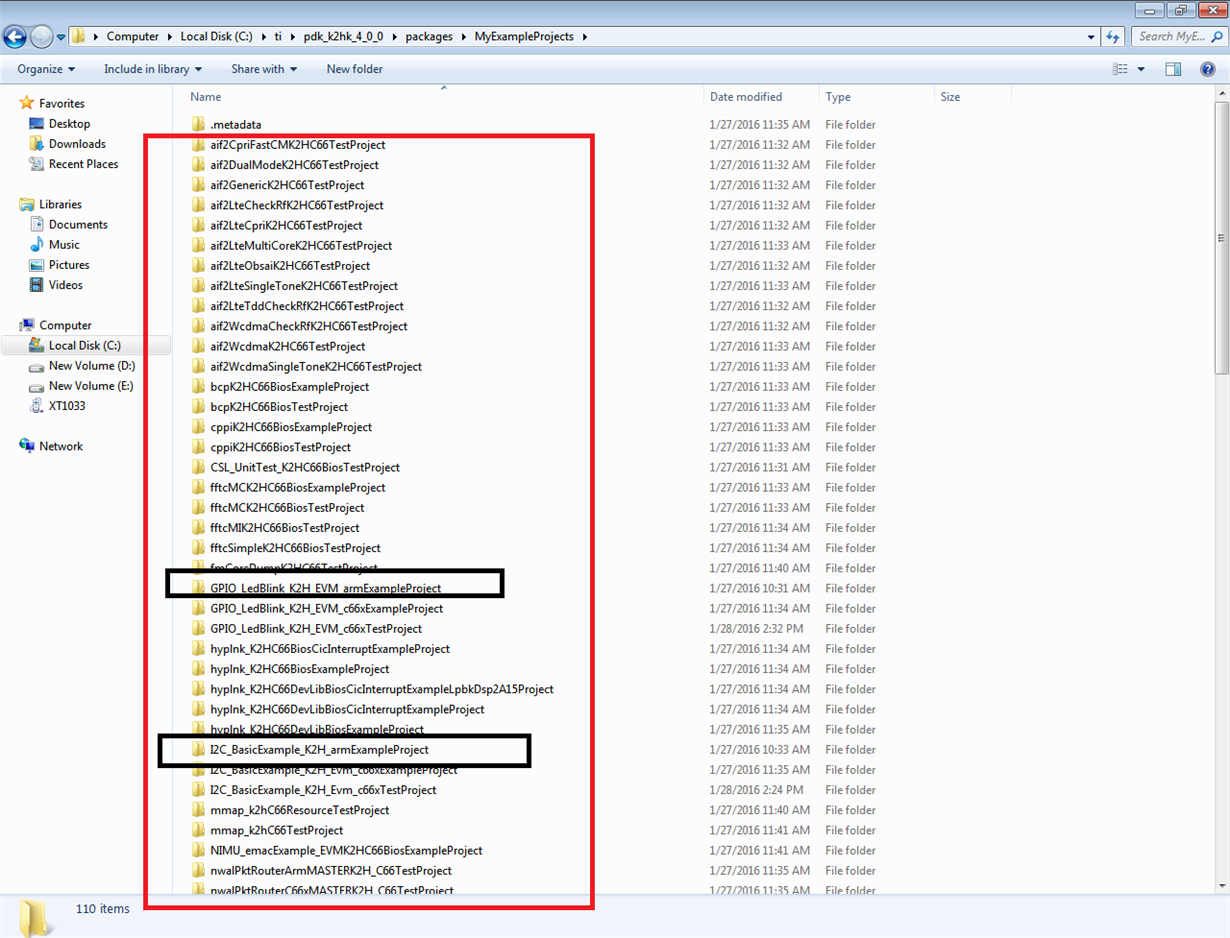Hi,
I currently am running on a TCIEVMK2H board.
I can successfully run using the USB UART 1 and building the Linux application on a Linux target and using TFTP to load the executable down to the target and running it on the A15s.
I can also build a DSP project in CCS (CCSv6.1.1) and execute on any of he DSPs using no-boot mode (with evmk2h.ccxml gel file).
However, when I try and build the example project to run on the A15, I am having trouble. I cannot seem to find any instructions on how to set up the A15 to run in this mode, as I did with the DSP projects. Using the same gel file for the DSP, I can connect to an AS15, so the connect path seems to be there. However, I cannot seem to load an A15 program.
Here is what I have tried so far:
1. I created an example project in CCS 'hello-GenericCortexA15Device'.
2. I was able to build the project and get a 'hello_GenericCOrtexA15Device.out file'.
3. When trying to load this file using the target connection, I get the following error:
arm_A15_0: GEL Output:
Connecting Target...
arm_A15_0: GEL: Error while executing OnTargetConnect(): Target failed to read 0x02620020
at (*((unsigned int *) 0x02620020)&0x0000000E) [xtcievmk2x.gel:569]
at OnTargetConnect()
arm_A15_0: File Loader: Verification failed: Values at address 0x0000000080000000 do not match Please verify target memory and memory map.
arm_A15_0: GEL: File: /home/osboxes/workspace_v6_1/hello_GenericCortexA15Device/Debug/hello_GenericCortexA15Device.out: a data verification error occurred, file load failed.
arm_A15_0: Unable to terminate memory download: NULL buffer pointer at 0x3aa4
4. I searched the forums and found a post that linked to this post: https://e2e.ti.com/support/dsp/c6000_multi-core_dsps/f/639/p/430233/1538734#1538734
5. Comparing my project to the example in the above link, I notice one glaring difference that is most likely the problem.
My compiler is set to 'GNU v4.8.4 (Linaro), and the only selections are for that and 'GNU v4.7.3'. There appears to be a reference to a TI compiler in ~/ti/ccsv6/tools/compiler, but I am not sure if this is the right place to look or which file to select, as none of them appear to be obvious.
This is different from the 'ti 5.1.5' in the example.
It seems that until I get the compiler correct for the TI ARM, the linker command file probably won't work. Is that correct?
Any help with this would be appreciated.
Thanks
Doug





